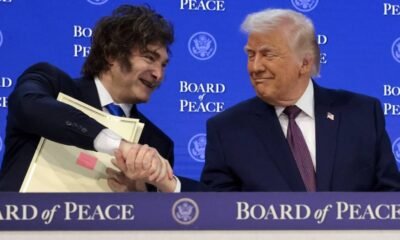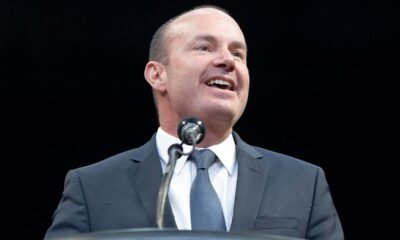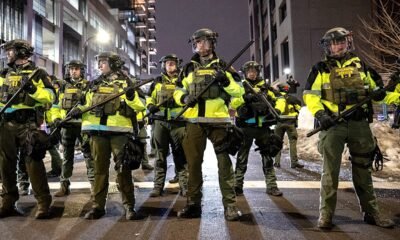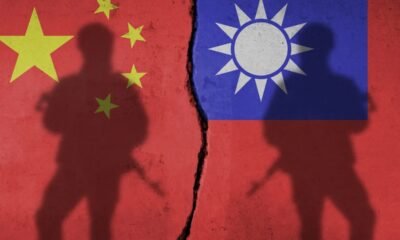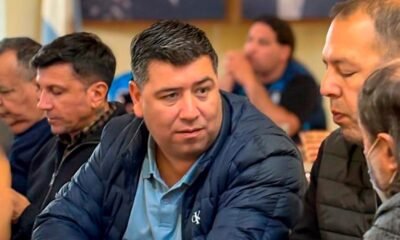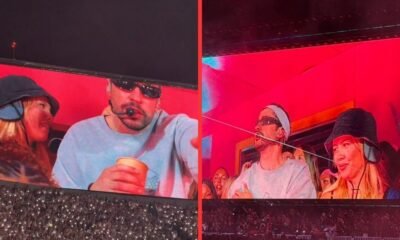INTERNACIONAL
La guerra con Ucrania: Donald Trump propone a la Unión Europea imponer aranceles a China e India para presionar a Vladimir Putin

INTERNACIONAL
House Dem’s graphic chicken decapitation ‘horrified’ her college roommates: ‘Blood went everywhere’
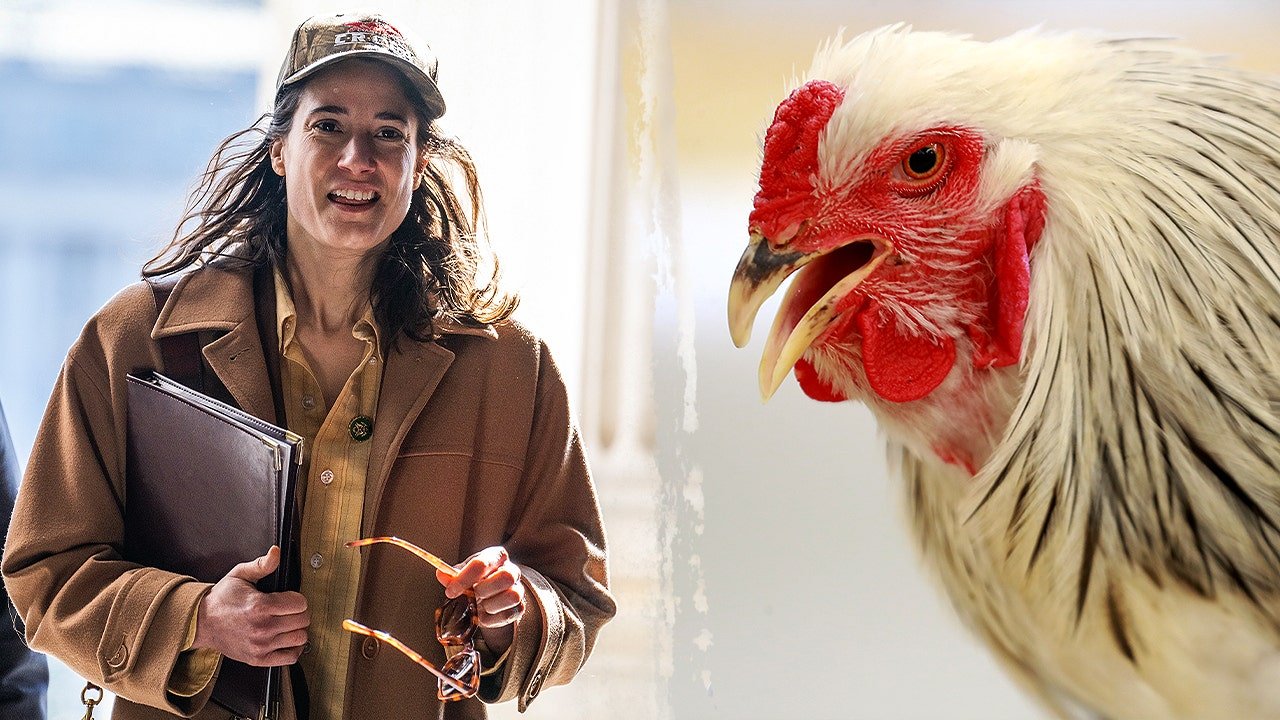
NEWYou can now listen to Fox News articles!
FIRST ON FOX: College roommates of Rep. Marie Gluesenkamp Perez, D-Wash., who is now 37-years-old, said they were «horrified» after the now-Democrat member of Congress up for reelection this year allegedly «serrated» a chicken’s head off with «a dull kitchen knife» while they lived together.
The incident allegedly stemmed from the vulnerable Democratic congresswoman and her roommates engaging in the practice of «urban farming,» a practice that is quite popular in Portland, where they went to a small private school called Reed College.
Gluesenkamp Perez’s former roommate and others connected to her from their time at Reed College, recounted the incident when they were all trying to research ways to humanely kill the chicken, but Glusenkamp Perez allegedly thought everyone was being «f—ing pu–ies,» so she «grabbed» the chicken and began «grinding [the chicken] down with a dull knife» leading the animal to begin «gasping for air with no lungs to suck it in.»
«Then she held up the body as it spazzed out and blood went everywhere like some crazy Santeria voodoo ritual,» recalled her former roommate, Isaac Eger, while attending Reed, who also wrote about his house’s «epic fail» at urban farming back in 2014.
TOP DEM FUNDRAISER SLAMMED FOR HONORING NAZI OFFICER IN SOCIAL MEDIA POST: ‘DISTURBING TREND’
Rep. Marie Gluesenkamp Perez (D-Wash.) (Tom Williams/CQ-Roll Call, Inc via Getty Images)
Eger, who hosts the podcast that brought together folks from Gluesenkamp Perez’s past for an episode a few weeks ago, refused to speak with Fox News Digital or provide any comments on, or to clarify events from, his time living with the Washington State congresswoman. He did imply to Fox News Digital that his podcast is a joke, and said that if he had to clarify any part of it, that would extinguish the comedic value.
«Marie bravely was like, ‘Ill dispatch of this chicken,’» Eger recounted on the podcast episode subscribers must pay to listen to titled «Absolutely Sweet Marie Gluesenkamp Perez.»
«Dude, I will never forget, like, frantically YouTubing how to humanely kill a chicken and Marie was just like, ‘You f—ing pussies, like, you’re on YouTube?’ It was, like, you and I on a computer, like, trying to figure this out and she just grabbed it and started swinging it around,» added Sam.
«That’s not at all what happened,» Eger interjected. «She didn’t just ‘chop it.’ She took a dull kitchen knife and tried to serrate[ly] cut … she was grinding this thing down with a dull knife and I remember you were horrified. It was really bad. And we saw, like, the chicken’s, like, decapitated head just, like, gasping for air with no lungs to suck it in, and then she held up the body as it spazzed out and blood went everywhere like some crazy Santeria voodoo ritual.»
While Sam contested the serrating, he affirmed the knife was quite dull and said «for sure» after Eger began to describe the scene of the chicken’s blood spurting everywhere.
«For sure, for sure. Everyone knows that you can run around like a chicken with your head cut off, but what that saying leaves out is what happens to the head without the body and it’s, like, also still completely functioning for a second,» Sam continued as Eger laughed.
‘GOP’ HOUSE CANDIDATE ADMITS SHE’S ACTUALLY A PROGRESSIVE IN VIRAL VIDEO: ‘TELLING PEOPLE THE TRUTH’
Eger went on to point out what he felt the incident symbolized, particularly as it related to his old college roommate’s time as an elected member of U.S. Congress.
He said that while part of him «respected» Gluesenkamp Perez «for her bravery» and her pro-activeness in killing the chicken, he also chided the inhumane nature in which she killed the chicken and said it represented the large amount of «hubris» the now-congresswoman had even as a college student at a small private liberal arts school.

Rep. Emily Randall, D-Wash., accepts the «The Chick» painting from Rep. Michael Baumgartner, R-Wash., left, as members of the Washington State delegation look on, in Longworth building on Friday, January 9, 2026. The painting goes to the newest member of the delegation every new Congress. Pictured in the background are, from left, Reps. Baumgartner, Marie Gluesenkamp Perez, D-Wash., Marilyn Strickland, D-Wash., Dan Newhouse, R-Wash., Kim Schrier, D-Wash., and Rick Larsen, D-Wash. (Tom Williams/CQ-Roll Call, Inc via Getty Images)
«I think Marie is a very proud and she’s an incredibly stubborn person who I think has unbelievable confidence in herself,» Eger said during the podcast episode, which was entirely focused around the congresswoman and their history with her in college.
«I think [that] is what it takes to become a f—ing congressperson,» Eger said.
«I think we are finding a thread here, yeah,» added Sam. «I think also, like, being like, ‘F–k the consequences. I’m just going to go, like, being head– being headstrong.’ And just, like, ‘I’m going to take care of this. Like, and this might be a really bad idea, but here I am. It’s already done. It’s already happening.»
During the Jan. 29 podcast episode, Eger, Boguslaw, who also declined to speak to Fox News Digital, and Sam also recounted their time living with Gluesenkamp Perez and her bunny she brought with her at the time named «Meatball.» According to the crews of former Reed College students, Gluesenkamp Perez would breed Meatball and then eat its kids.
‘AT SOME POINT, YOU AGE OUT’: OBAMA URGES DEMOCRATS TO PASS TORCH TO YOUNGER CANDIDATES
«A friend of mine said that when he came back to the house once, she started a rabbit-eating cult,» Eger said during the podcast. He and Boguslaw recalled how «absent-minded» Gluesenkamp Perez was when it came to their «urban farming venture,» describing how they would often have to take care of her animals for her less they would perish.
«Did you go with her to breed her rabbit and we watched them, like, smash the rabbit against the wall?» Eger asked Sam during the podcast episode.
«Meatball? Hell yeah,» Sam responded.

Representative Marie Gluesenkamp Perez, a Democrat from Washington, reads a document on the steps of the US Capitol in Washington, DC, US, on Saturday, Sept. 30, 2023. (Anna Rose Layden/Bloomberg via Getty Images)
Eger also took shots at the congresswoman he used to room with, describing her as a carpetbagger and accusing her of «cosplaying as a poor person» during college and still today even though he believed she was likely having college paid for by her parents, arguing she could not have been eligible for financial aid.
«Her parents are wealthy. Because if you can afford – and she’s one of four kids – if you can afford to pay for a $40,000 a year college, so that doesn’t include like the other, like at least $10,000 dollars a year in living expenses, you’re wealthy,» Eger argued during his podcast. «That means she wouldn’t have qualified for financial aid. Now, what she says in order – this is part of her lore, she’s definitely cosplaying as a poor person.»
«Which never happened at Reed. As far as I’m concerned,» Boguslaw said back sarcastically with a laugh.
Eger also charged Gluesenkamp Perez with lying about being a fifth generation Washingtonian during his 2-hour-long podcast episode, alleging she is actually originally from Houston.
«She grew up in Houston, Texas. Her father was Mexican, born in Mexico, where her mother, who is from Washington, met him,» Eger said. «She brought him over the border, and then Marie’s kind of an anchor baby.»
CLICK HERE TO DOWNLOAD THE FOX NEWS APP

Rep. Marie Gluesenkamp Perez, D-Wash., walks up the steps of the U.S. Capitol. (Photo by Anna Moneymaker/Getty Images)
Gluesenkamp Perez is the member of Congress representing Washington’s 3rd Congressional District, which covers the southwest portion of the state, including the Vancouver and Portland-area suburbs around Clark County.
She was first elected to Congress in 2022 and then was reelected in 2024. Gluesenkamp Perez has significantly out-raised all of her competitors, with almost $2.5 million cash-on-hand, according to Ballotpedia.
Her nearest competitor is Republican John Braun, a member of the Washington State Senate, who has a little over $700,000 cash-on-hand, per Ballotpedia.
Gluesenkamp Perez, nor any of her representatives, responded to Fox News Digital’s request for comment on this story.
democrats,washington,democrats elections,midterm elections,politics
INTERNACIONAL
Luego de bombardear Ucrania con 400 drones, Rusia dijo que no espera avances rápidos en el diálogo de Ginebra
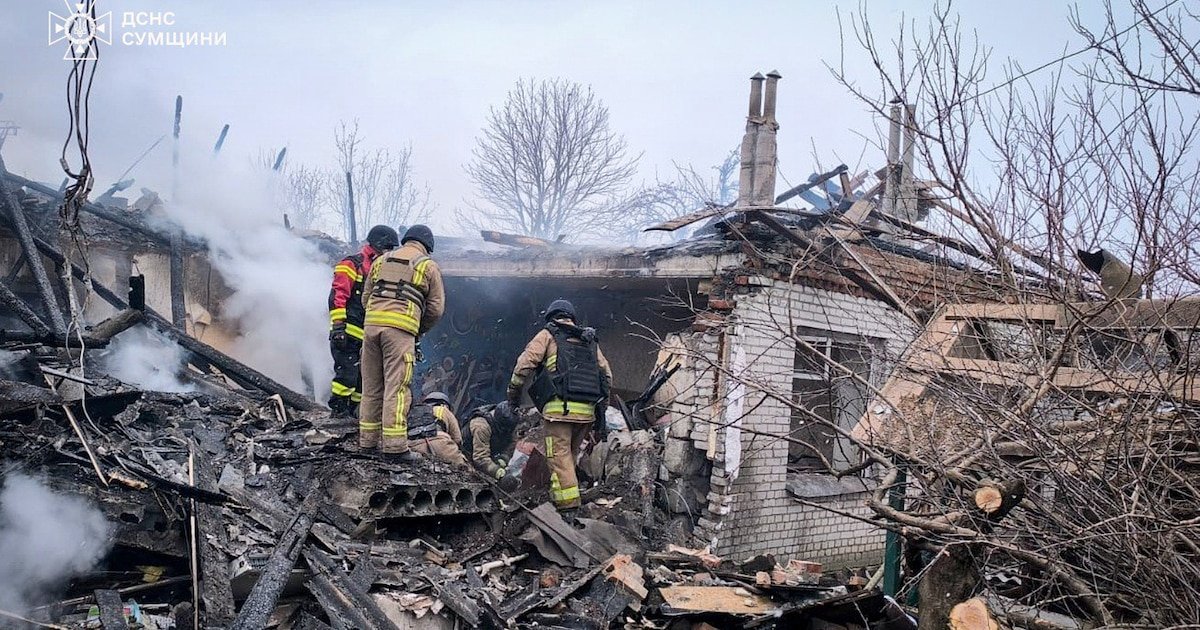
El Kremlin advirtió el martes que no espera resultados el primer día de las conversaciones de paz en Ginebra, horas después de que Rusia lanzara casi 400 drones y 29 misiles contra Ucrania en un ataque que dejó al menos tres muertos, nueve heridos y a decenas de miles de personas sin calefacción ni agua.
“No creo que debamos esperar noticias hoy, ya que está previsto que los trabajos continúen mañana”, declaró el portavoz del Kremlin, Dmitri Peskov, en rueda de prensa, descartando cualquier anuncio relevante para la jornada.
El bombardeo nocturno apuntó al sistema energético ucraniano en 12 regiones. Tres trabajadores energéticos murieron cerca de la ciudad industrial de Sloviansk cuando un dron ruso atacó el vehículo en que se transportaban. En Odesa, ciudad portuaria del sur, decenas de miles de residentes quedaron sin calefacción ni agua potable.
“Fue un ataque combinado, calculado deliberadamente para causar el mayor daño posible a nuestro sector energético”, escribió el presidente ucraniano Volodimir Zelensky en redes sociales.
Las defensas aéreas ucranianas lograron derribar 24 de los 25 misiles de crucero y 367 de los aproximadamente 396 drones lanzados, según la Fuerza Aérea de Ucrania. Los cuatro misiles balísticos Iskander-M no pudieron ser interceptados.
Pese al ataque, las delegaciones de Moscú y Kiev llegaron a Ginebra para la tercera ronda de negociaciones tripartitas mediadas por Estados Unidos, que se extenderá durante dos días. El enviado del presidente Donald Trump, Steve Witkoff, y el yerno presidencial Jared Kushner participarán en los encuentros, junto al general Alexus Grynkewich, comandante de las fuerzas estadounidenses y de la OTAN en Europa.
Las expectativas de avance, sin embargo, son bajas. Según una persona familiarizada con las negociaciones que habló con AP bajo condición de anonimato, se esperan discusiones “duras” sobre el territorio ucraniano ocupado por Rusia, dado que Moscú insiste en que Kiev ceda el control del Donbas. Los jefes militares de los tres países también discutirán cómo funcionaría el monitoreo de un eventual cese del fuego.
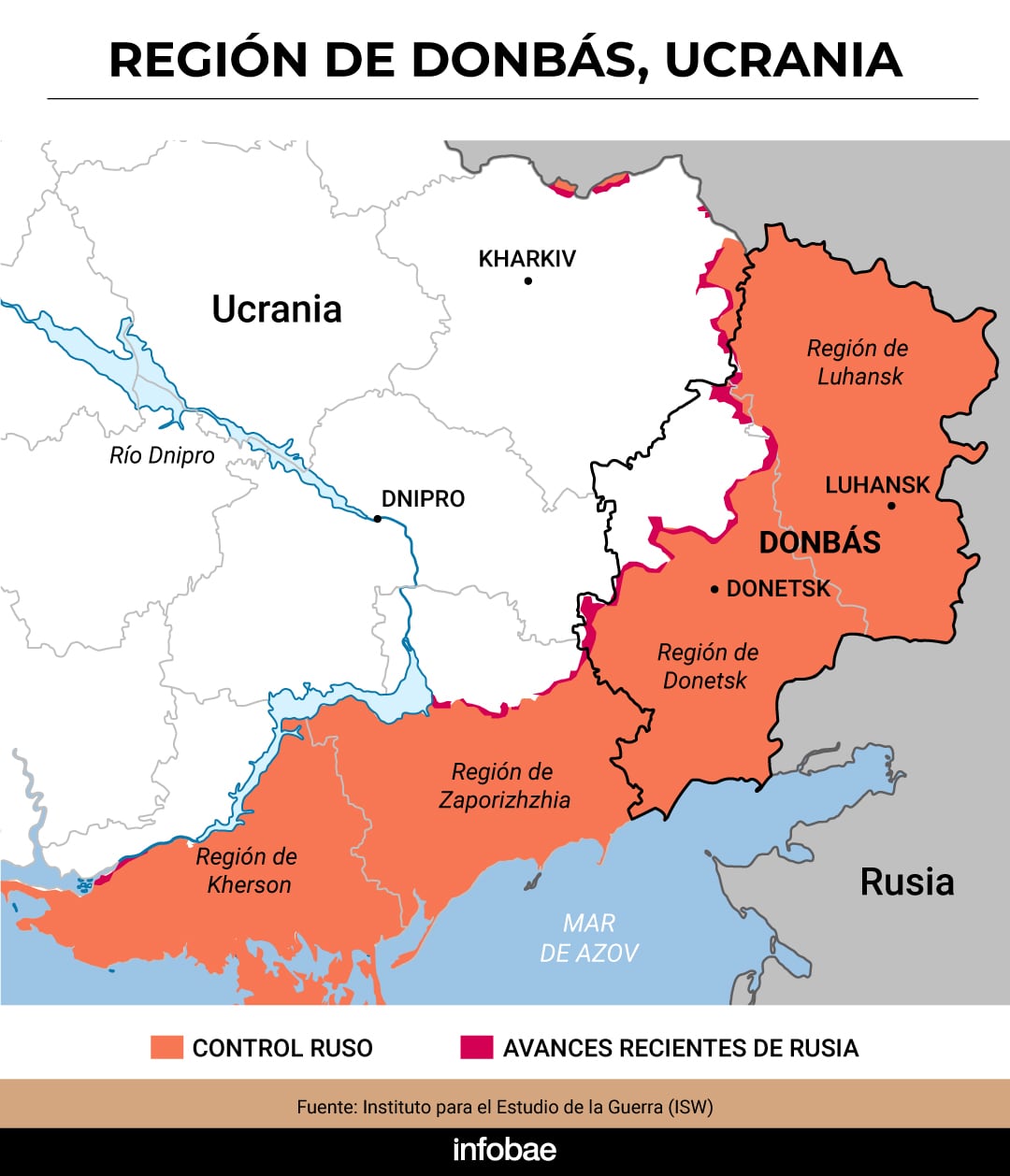
Las conversaciones de Ginebra son la tercera ronda de un proceso que comenzó en Abu Dabi el 23 de enero y tuvo su segunda sesión en esa misma ciudad el 4 y 5 de febrero.
Trump describió la reunión como “grandes conversaciones” y, al regresar a Washington desde Florida el lunes por la noche, advirtió: “Ucrania mejor que venga a la mesa rápido”. No quedó claro de inmediato a qué se refería, dado que Kiev ha participado activamente en todas las rondas de negociación y ha aceptado las propuestas estadounidenses, incluida la de un cese del fuego incondicional y de largo plazo.
Zelensky señaló que el bombardeo ruso complica precisamente esos esfuerzos diplomáticos. “Cuanto más mal venga de Rusia, más difícil será para todos llegar a acuerdos con ellos. Los socios deben entender esto. En primer lugar, esto concierne a Estados Unidos”, escribió.
El mandatario exigió además que Rusia sea “responsabilizada” por sus ataques contra la población civil y reclamó sanciones y apoyo militar inmediato. “Nuestra diplomacia será más eficaz si hay justicia y fortaleza”, afirmó.
Las conversaciones celebradas a principios de este año en Abu Dabi se centraron en cuestiones como la forma de establecer una zona desmilitarizada en las zonas en disputa y cómo las fuerzas armadas de todas las partes podrían mantenerse en contacto, según la fuente.
Las conversaciones de Ginebra tuvieron lugar mientras funcionarios estadounidenses también mantenían conversaciones indirectas con Irán en la ciudad suiza.
Military Conflicts
INTERNACIONAL
Irán realiza maniobras militares en el estrecho de Ormuz, horas antes de las negociaciones nucleares con Estados Unidos
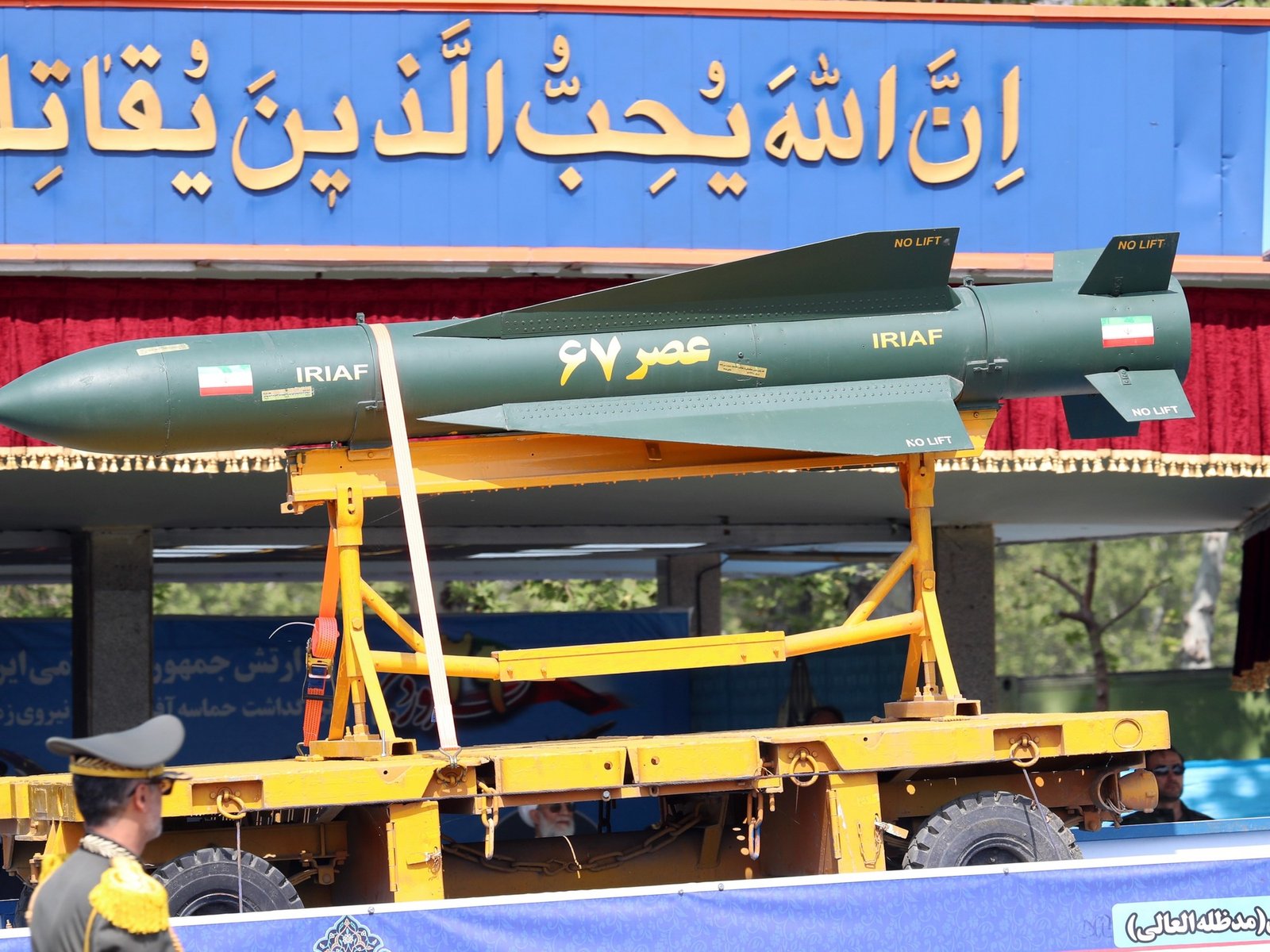
Sospechas

 POLITICA2 días ago
POLITICA2 días agoUno de los jefes de la CGT adelantó que convocarán a un paro general por la reforma laboral: “Trabajaremos para que sea una gran huelga”

 POLITICA2 días ago
POLITICA2 días agoEfecto Santa Fe: policías y penitenciarios de Río Negro rechazaron un aumento en cuotas y amenazan con acampar por tiempo indeterminado en Viedma

 CHIMENTOS1 día ago
CHIMENTOS1 día ago¡Sorpresa total! Wanda Nara irrumpió en la “Casita” de Bad Bunny y revolucionó River

